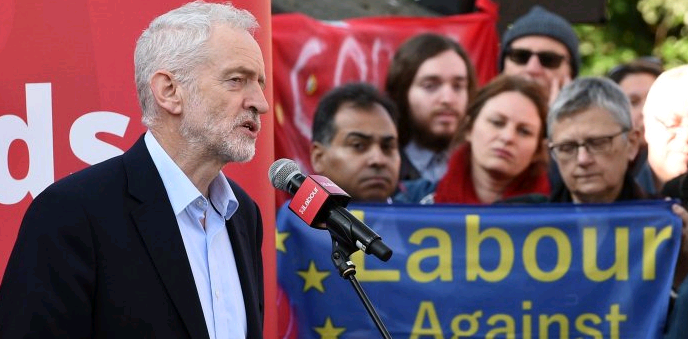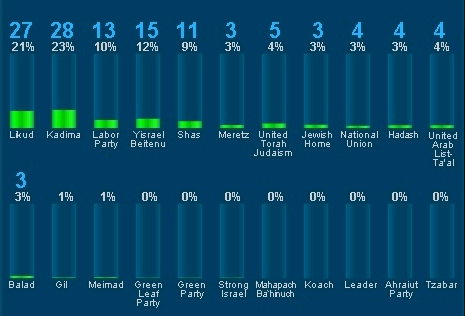Following the formation of the TIG (now Change UK) and Tom Watson’s Future Britain Andrew Rawnsley contended that Labour’s balance of terror has shifted. Now Corbynites have cause to be fearful.
I’m not convinced, Nick Cohen noted that:
“They leave behind about 130 MPs, who know that the old Labour party has been taken over by men and women from the communist tradition, who wish to destroy them.”
As recently as 2015, despite Miliband’s tack left, Labour was still, essentially, social democratic, but a few months after Corbyn’s victory Mark Wallace reported that ”it’s all about deselections”.
“No enemies to the left” is a long-standing tenet of Bennites and Professor Alan Johnson notes (p82) that:
“Many new members have had formative experiences in the far-Left or in social movements led politically by the far-Left or non-Labour Left, including Stop the War and the Palestine Solidarity Campaign. Some of Jeremy Corbyn’s most influential advisors have spent their political lives in the hard-line factions of the Communist Party and its successors.”
Corbyn’s from the same sewer.
Some are pledging to “stay and fight” but the numbers appear to be against them.
It’s contended that ”over 80% of their members have arrived since 2015” and a poll revealed that Labour members believe ”anti-Semitism is being exaggerated to damage Jeremy Corbyn…….77% believe it is used to undermine the leader or stop criticism of Israel”.
These are a year apart and come with multiple health warnings but paint a consistent picture.
The Jewish Labour Movement voted to stay affiliated but were then replaced as the provider of antisemitism awareness training.
A Corbyn government’s foreign policy would be Kremlin friendly which would be anathema to many. Much of the hard left, including Corbyn, don’t accept Israel’s right to exist and would want BDS as official government policy, supplemented by anti-Israel use of the permanent seat on the Security Council, etc, etc.
The Labour Friends of Israel and the Jewish Labour Movement would actively oppose this and even with a Blair-sized majority could be successful.
The Corbynite attitude towards business and wealth is that if it moves, nationalise it, if it doesn’t, tax it and, again, this would be resisted by social democrats who understand the Laffer curve.
Labour has been largely remade in Corbyn’s image – except the parliamentary party, although some of the 2016 ‘chicken coup’ plotters weren’t against him and his policies, they thought he was a loser.
The Corbynistas’ position is, unless you believe MPs should have a job fir life, understandable. Political parties are voluntary organisations, members have to be enthused and to give the devil his due Corbyn has succeeded in this – but don’t mention Brexit!
On the other side of the political spectrum the vote of no confidence in Dominic Grieve suggests that some Conservatives think the same.
The ‘best’ election result currently possible for Labour is a small/modest majority and it’s difficult to see how Corbynite policies could be implemented with a rump of non believer MPs.
Labour was better prepared in 2017 but Corbynite control was incomplete and the timescales meant that many Corbynsceptic MPs were reselected. They hoped that May would put Corbyn out of their misery but the result just emboldened Corbynistas. The next election is potentially three years away, but could be in three months or even three weeks.
The SDP casts a long shadow but as I previously noted:
“It could be argued that the circumstances that caused the split only existed for a few years”
As sewage is uneven not every Corbynsceptic MP is in the same situation as Luciana Berger so potential jumpers have to look at their constituency party and also decide whether Labour is past the point of no return.
The description of the formation of the TIG as a ”necessary cleansing” will be shared by many Corbynistas who believe that lightning will strike twice and the next election will result in Corbyn becoming PM. They know where they’re strong and who’s onside; deselections generate bad publicity but this is likely to be short term.
Considering the potential problems a reasonable number of Corbynsceptic MPs could cause, a purge would not be unexpected and the volatile political situation argues against waiting.
It seems unlikely that all Corbynsceptic MPs will be deselected, I would not be surprised to see some announcing their “retirement”, i.e., jumping before they can be pushed and others may join Change UK. A few will survive but the clock, not Michel Barnier’s this time, is ticking.
This is a guest post by John Wall





